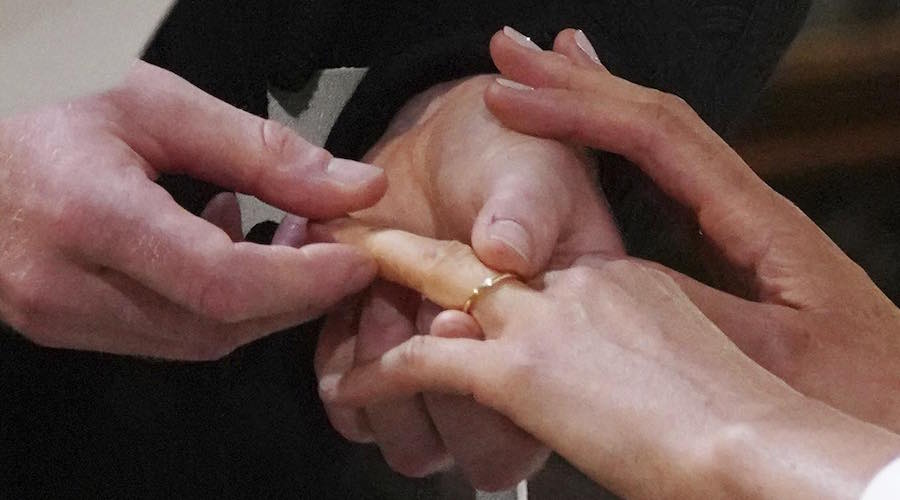Meghan Markle’s wedding band made with Welsh gold from historic mine

It’s the story of the weekend. Even if you don’t follow the Royals, you probably got a glimpse of Prince Harry and Meghan Markle’s wedding somewhere.
One of the most important elements in the ceremony was the wedding ring, particularly the one given to the bride. Similar to her engagement ring and following a 100-year-old tradition, Markle’s band was fashioned from a piece of Welsh Gold, gifted by Her Majesty The Queen.
The 24-carat piece of gold originated at the Clogau St. David mine, located near Bontddu in northwest Wales and owned by Clogau Gold of Wales. The Royals started receiving nuggets of the yellow metal from this mine back in 1923.

Photo from The Royal Family’s Facebook page.
From Clogau St. David was also extracted the gold behind three generations of royal wedding bands, including those of the Queen Mother, the Queen, Princess Margaret, the Princess Royal and Diana, Princess of Wales.
Later on, in 1986, the Windsors started receiving gold from the Gwynfynydd mine, which is also located in northwest Wales and is now owned by Clogau.
The Clogau St. David and Gwynfynydd mines are currently closed, having last operated in the 1990s. However, early this year it was announced that the former might reopen.
London-based Alba Mineral Resources said it has taken a 49 per cent interest in Gold Mines of Wales Limited and that it had decided to restart the project because it sits on “a vastly under-explored exploration ground.”
In terms of Prince Harry’s wedding ring, a press release issued by Buckingham Palace revealed that his was made of platinum with a textured finish.
The couple chose Cleave and Company to make their bands. They were carried to St. George’s Chapel by The Duke of Cambridge Prince William, Harry’s older brother and best man.
Cleave and Company also crafted Markle’s engagement ring, which was designed by the Prince himself and features a yellow gold band and a central stone from Botswana, where Harry traveled to while growing up and again in the summer of 2017 to celebrate his now wife’s 36th birthday.
{{ commodity.name }}
{{ post.title }}
{{ post.date }}




Comments